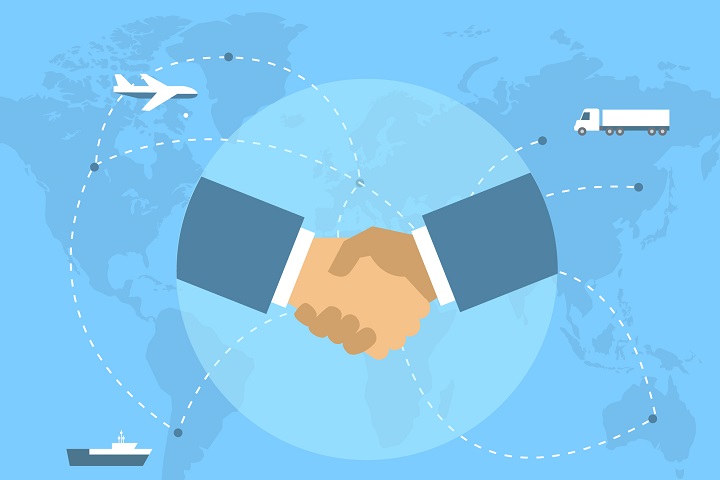During the first months of the Covid-19 pandemic, many observers predicted the interruption of supply chains and predicted the end of global exchanges. However, the current scenarios are very encouraging for International Trade as official indicators reveal a resounding recovery in commercial activities on a global scale and the vast majority of governments have found an opportunity rather than a threat to their national sovereignty.
However, some of the challenges and threats that trade faces are the downside risks, regional disparities, the continued weakness of trade in services and the delay in carrying out vaccination days in poor countries, since it is presumed that new waves of infections could easily derail the remarkable recovery. However, the WTO estimates that in 2021 the volume of international trade will grow by 8%, an increase higher than the 5.3% drop in 2020.
One of the reasons why this activity has been able to regain its strength is that the international transport of goods requires little physical interaction between people and social distancing can be maintained: containers are loaded and unloaded with large cranes. Another reason why international trade has been quickly restored since 2020 has been the monetary and fiscal support of governments to mitigate the waves of infections from the pandemic, coupled with the availability of vaccines.

Regarding the dependence of national governments on international trade and imports, in the specific case of the old continent, the European Commission carried out a study of their strategic dependencies and capacities. For this, 5,000 products were taken into consideration and a dependence on foreign suppliers was recorded for only 137 products belonging to the most “sensitive” sectors. Only 34 of these products were found to represent greater vulnerability, either due to the difficulty in diversifying imports or replacing them with European production.
Taking up the thread of the WTO report, this Organization urged its member countries to guarantee predictable markets and rules. Its CEO, Ngozi Okonjo-Iweal, described: “The restraint in making trade policy decisions by WTO members has helped limit the damage to the world economy.” During the study period of the report (October 2020 – May 2021) the implementation of 384 measures was recorded, of which 65% facilitated trade and 35% are considered restrictive.
It should be noted that 1,500 economic support measures were implemented by 106 WTO members since the beginning of the crisis as a result of Covid-19, including subsidies, loans and stimulus packages for the sectors of the economy most affected. For example, the reduction or elimination of import duties, especially on products such as disinfectants, medical equipment, drugs, oxygen and active substances.

The report indicates that by mid-May 2021, around 21% of trade facilitation measures and 54% of COVID-19 trade restrictive measures have been terminated. Likewise, 57% of the 114 export restrictive measures established since the beginning of the pandemic have been repealed.
In another vein, electronic commerce has allowed various countries to attract a greater number of customers who demand logistics services related to imports. According to the 2021 Global Commerce Report, published by PayPal, the pandemic accelerated the adoption of e-commerce in the world, especially in Mexico, and mobile commerce (mcommerce) grew twice as fast as electronic commerce in general.
According to the PayPal report, the pandemic has been a boost to e-commerce and this has enabled cross-border sellers to help meet consumer demand. However, in the case of the United States, international sales are only 12% of the eCommerce market. However, it is to be noted that US cross-border purchases have grown 42% from 2019, indicating greater acceptance and enormous potential.

To all these markers it is necessary to add the incipient use of cryptocurrencies in foreign trade, given that digital money is becoming an inescapable reality that makes instant transactions possible regardless of border limits.
In this sense, it should be noted that IC Corporation is constantly updated to be at the forefront and continue creating strategies and consolidating commercial links of goods and services through the markets of different countries with the dynamism, responsibility and solidity that characterizes.
The development of this company with extensive experience in International Trade is based on organizational growth and expansion. To do this, new investments are made every time in association with clients and we bet on global exchange as a way of meeting everyone’s needs.

IC INTERNATIONAL GROUP
Copyright © 2024. Todos los derechos reservados
to save your favourite homes and more
Log in with emailDon't have an account? Sign up
Enter your email address and we will send you a link to change your password.
to save your favourite homes and more
Sign up with emailAlready have an account? Log in